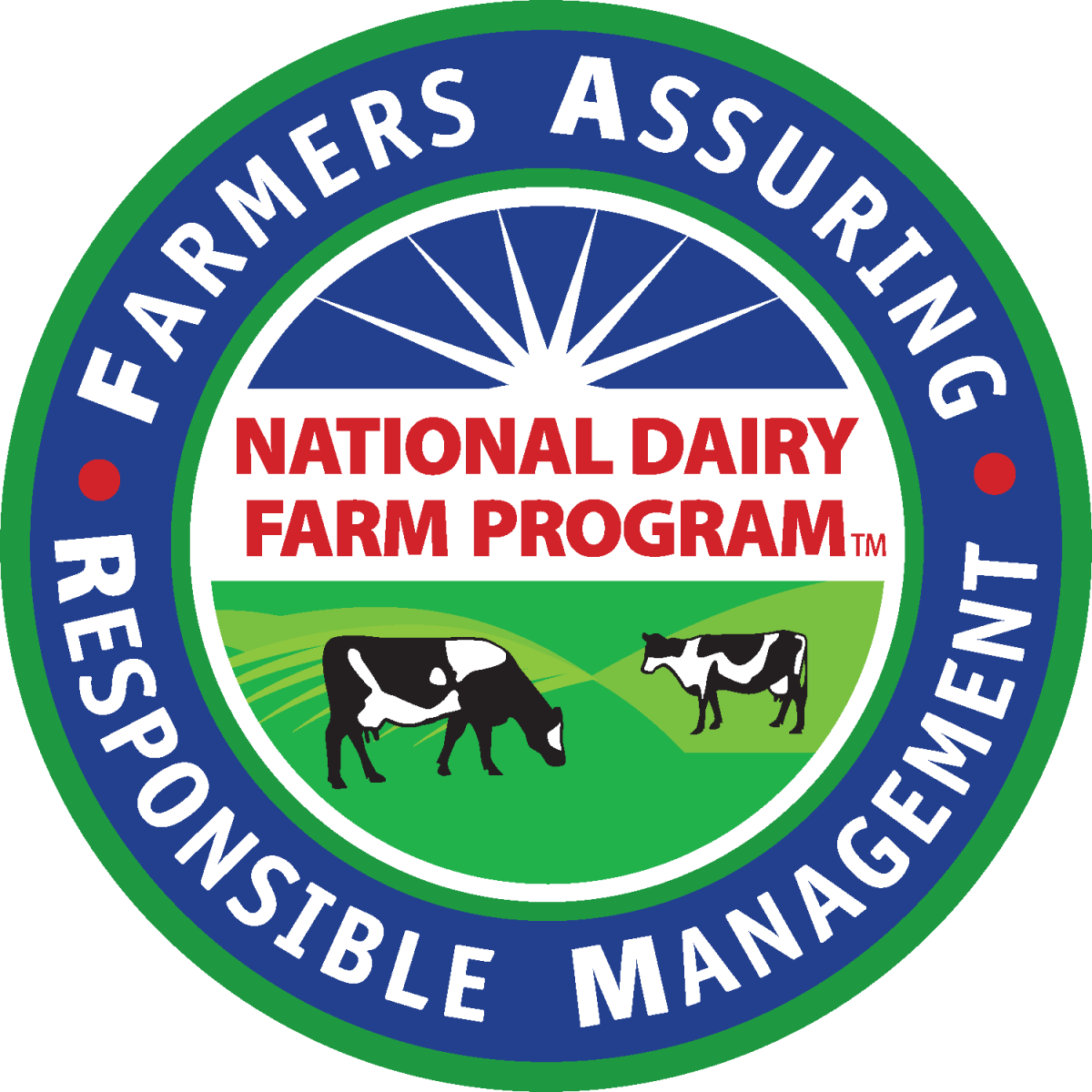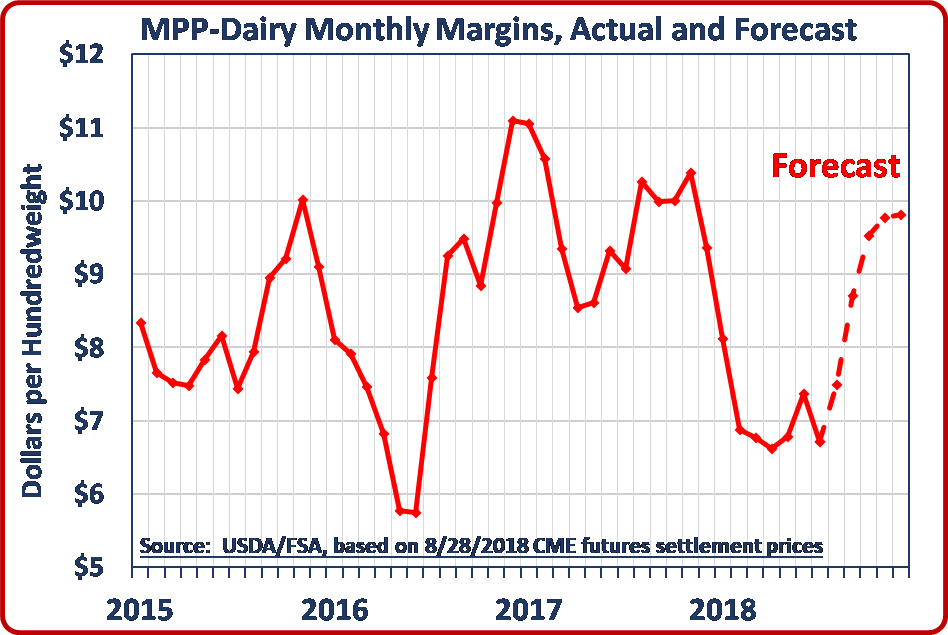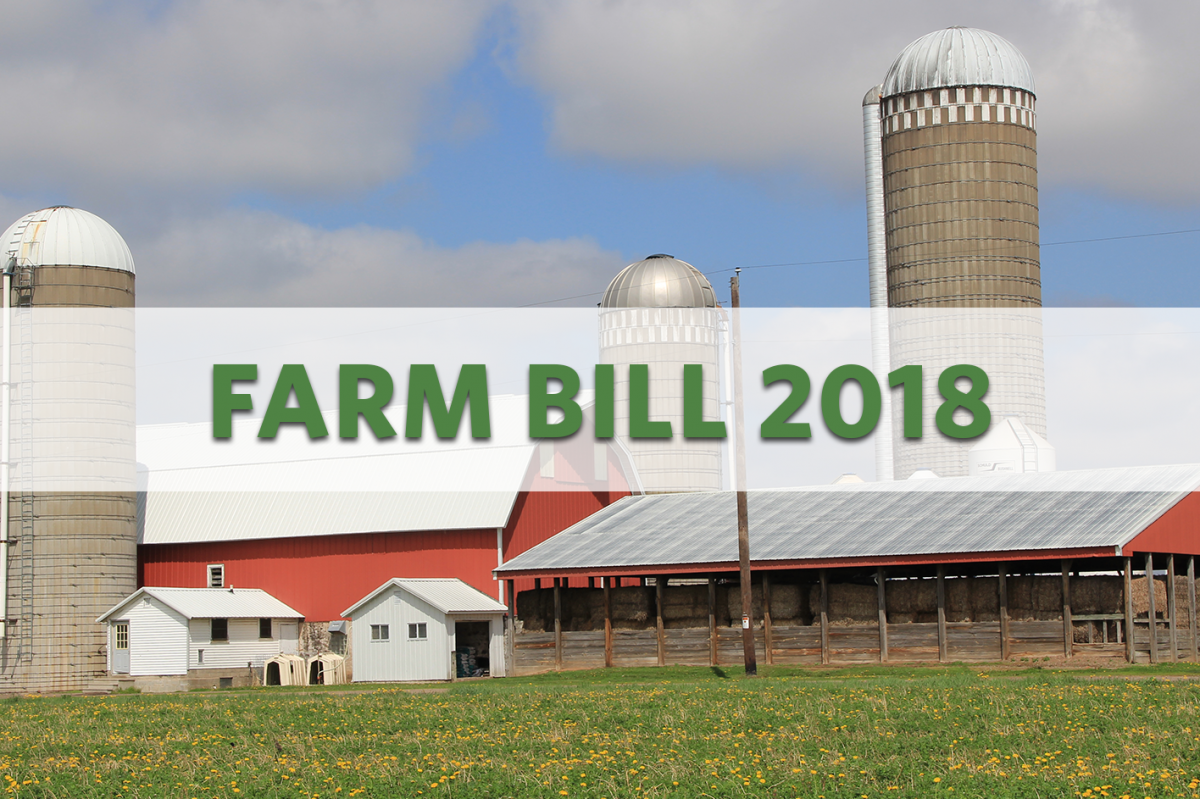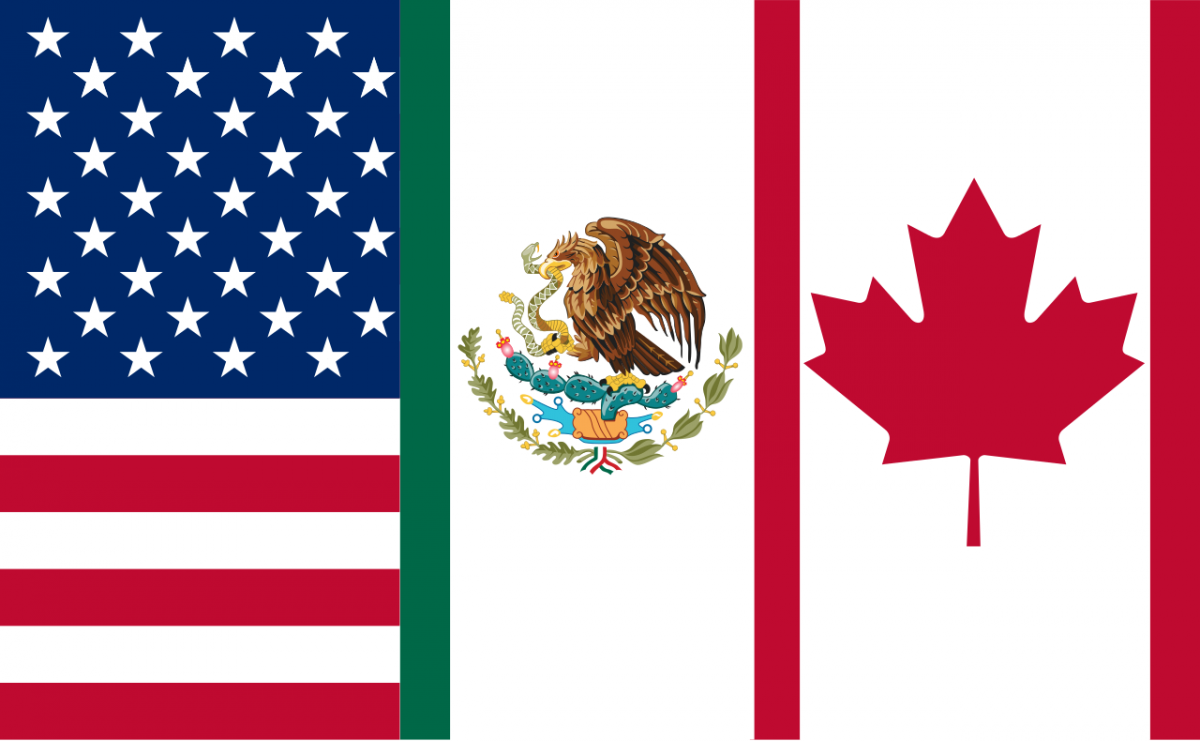Any attempt to mend an injury – however necessary – doesn’t often achieve a complete restoration of what’s been damaged. Repairs never quite return things to a “good as new” status. On a personal level, all of us have some scar tissue that demonstrates this truth. From a broader, economic perspective, the various safety nets and policy remedies offered by the government – while important to many in agriculture – can’t fully replace the loss of markets and income.
The latest example of this dynamic is the program the U.S. Department of Agriculture (USDA) created this summer to compensate dairy farmers for the revenue they’ve lost due to the retaliatory tariffs imposed by Mexico and China. Farm-level milk prices had just started their seasonal and expected upward movement this spring, but cash and futures prices did an abrupt about-face once tariffs were announced on exports to our top two foreign markets. NMPF calculated that farmers’ milk prices took a hit of $1.65/cwt., which if conditions don’t fully improve, will deprive them of $1.8 billion in projected revenue in the last half of 2018. That’s a very deep wound, compounded by an already challenging market situation.
To its credit, USDA acknowledged that the ongoing tariff conflicts affect farmers of many different commodities, and announced efforts to provide compensation. NMPF told USDA that the remedy should center on direct payments to producers and incorporate assistance to exporters facing a reduction in sales. When the department announced its tariff mitigation package last month, the good news was that the agency followed the suggestions we provided in terms of how to administer the aid. But the very bad news for dairy farmers is that the amount of aid – $127 million in direct payments – is a tiny bandage atop a very deep wound.
The $0.12/cwt. payment – that’s only a penny per gallon – amounts to less than one-tenth of the lost revenue caused by the downturn in markets. Although we knew, based on conversations with senior USDA officials in recent weeks, that the aid package was likely to be significantly smaller in size than the initial forecast, the actual result is a deep disappointment. It certainly pales in comparison to the damage that dairy farmers continue to suffer.
We have been clear with USDA that dairy farmers are not satisfied with compensation that falls significantly short of where markets were headed earlier this summer, based on all major analytical forecasts prior to the announcement of the retaliatory tariffs. We will continue to share our misgivings with administration officials and our allies on Capitol Hill.
As the USDA announced the tariff mitigation package, we also saw significant progress on the underlying source of the retaliatory tariffs: the strained trade relationship with Mexico. On the same day the farm assistance package was announced, the Trump Administration also touted an agreement in principle with Mexico on an updated deal over the North American Free Trade Agreement (NAFTA). While that’s good news overall, there are some important details that remain unresolved, especially Mexico’s treatment of cheeses made in the United States and sold in Mexico. What’s more, the agreement did not include lifting the 20%-25% tariffs on our dairy exports to Mexico, tariffs that are harming farm prices in the United States.
An important aspect of the accord with Mexico is that it puts new pressure on Canada to wrap up NAFTA issues. That conversation now centers on removing the Canadian policies that both hurt U.S. dairy exports on the world market through the Class 7 dumping program, and severely limit U.S. dairy market access north of the border. Top officials in the Trump Administration have repeated their insistence – in strong support of NMPF’s assertions over the past year – that any successful NAFTA outcome must create more trade opportunities for the U.S. dairy sector, and not allow Canada to continue engaging in flagrantly anti-competitive practices. The high profile of U.S. dairy exports within the larger overall NAFTA discussion is a credit to the steadfast efforts that NMPF, working together with the U.S. Dairy Export Council and the International Dairy Foods Association, has engaged in during the past year to ensure our industry’s voice is heard and heeded, above all the other interests focused on the NAFTA talks.
Meanwhile, the Farm Bill negotiations continued during the late summer, and have kicked into high gear in September, with the goal of getting a new bill passed by the end of this month. The slight differences in the dairy policy elements of the House and Senate versions of the bill should be fairly easily reconciled, and the final product will give America’s milk producers a better and more effective safety net than was established in the 2014 bill.
Of course, the reality is that, at best, the Farm Bill can only offer a modest back stop for agricultural producers. The same is true of this summer’s trade assistance package. The real driver of the future health of our industry is expanding existing markets – at home and abroad – and building new ones. In addition to revising NAFTA, we need to create new agreements with other nations to reach more consumers around the world with our foods. Opportunities for new growth are the best medicine for the afflictions farmers have suffered this year.


 The FARM Program has created helpful new human resources materials as part of its Workforce Development initiative. The aim of this project is to provide U.S. dairy farm owners and managers with guidance and best management practices around human resources (hiring, training, and supervision), as well as worker health and safety.
The FARM Program has created helpful new human resources materials as part of its Workforce Development initiative. The aim of this project is to provide U.S. dairy farm owners and managers with guidance and best management practices around human resources (hiring, training, and supervision), as well as worker health and safety. In mid-August, a new ruling issued by a U.S. District Judge in South Carolina revived the flawed 2015 Waters of the United States (WOTUS) regulation for some states – though the rule does not apply in other states where court actions have stayed its implementation. This most recent legal turn comes just after NMPF submitted comments to the U.S. Environmental Protection Agency (EPA) that said the 2015 rule must be permanently rescinded and the prior version of the regulation re-codified to provide better clarity for dairy farmers.
In mid-August, a new ruling issued by a U.S. District Judge in South Carolina revived the flawed 2015 Waters of the United States (WOTUS) regulation for some states – though the rule does not apply in other states where court actions have stayed its implementation. This most recent legal turn comes just after NMPF submitted comments to the U.S. Environmental Protection Agency (EPA) that said the 2015 rule must be permanently rescinded and the prior version of the regulation re-codified to provide better clarity for dairy farmers. In a major milestone for the farmer-managed export assistance program, Cooperatives Working Together (CWT) has helped its member dairy cooperatives export over 1 billion pounds worth of milk so far in 2018. That sum represents 50 percent of the overall rise in U.S. milk production through August of this year.
In a major milestone for the farmer-managed export assistance program, Cooperatives Working Together (CWT) has helped its member dairy cooperatives export over 1 billion pounds worth of milk so far in 2018. That sum represents 50 percent of the overall rise in U.S. milk production through August of this year. The July monthly margin under the Margin Protection Program (MPP) was $6.72/cwt., $0.65/cwt. lower than the June margin, owing mostly to lower milk prices. The July all-milk price was $15.40/cwt., $0.90 lower than in June, as the full effect of the retaliatory tariffs imposed by Mexico and China on various U.S. dairy imports rippled through U.S. domestic markets. The July MPP feed cost formula was $0.25/cwt. lower than the month before. Most of the drop in the monthly feed cost was split evenly between lower corn and lower soybean meal prices, when calculated on a per-hundredweight-of-milk basis.
The July monthly margin under the Margin Protection Program (MPP) was $6.72/cwt., $0.65/cwt. lower than the June margin, owing mostly to lower milk prices. The July all-milk price was $15.40/cwt., $0.90 lower than in June, as the full effect of the retaliatory tariffs imposed by Mexico and China on various U.S. dairy imports rippled through U.S. domestic markets. The July MPP feed cost formula was $0.25/cwt. lower than the month before. Most of the drop in the monthly feed cost was split evenly between lower corn and lower soybean meal prices, when calculated on a per-hundredweight-of-milk basis. The Senate and the U.S. House of Representatives have returned to Capitol Hill from their August recess to tackle several pressing matters before adjourning again for the fall campaign season.
The Senate and the U.S. House of Representatives have returned to Capitol Hill from their August recess to tackle several pressing matters before adjourning again for the fall campaign season. The Trump Administration made major strides in recent weeks to finalize negotiations over a new North American Free Trade Agreement (NAFTA), but the biggest issue for America’s dairy farmers – whether they will earn more market access to Canada – remains unresolved in early September. This high-stakes, high-visibility challenge is the key area where NMPF is heavily engaged this month on achieving a positive outcome for its members.
The Trump Administration made major strides in recent weeks to finalize negotiations over a new North American Free Trade Agreement (NAFTA), but the biggest issue for America’s dairy farmers – whether they will earn more market access to Canada – remains unresolved in early September. This high-stakes, high-visibility challenge is the key area where NMPF is heavily engaged this month on achieving a positive outcome for its members. Dairy farmers can now sign up for their share of the multi-billion-dollar trade assistance package developed by the U.S. Department of Agriculture (USDA), although the amount available in direct payments – just $127 million, or 12 cents per hundredweight on half of a farm’s annual production – falls far short of what NMPF had asked USDA to allocate.
Dairy farmers can now sign up for their share of the multi-billion-dollar trade assistance package developed by the U.S. Department of Agriculture (USDA), although the amount available in direct payments – just $127 million, or 12 cents per hundredweight on half of a farm’s annual production – falls far short of what NMPF had asked USDA to allocate.
 The National Milk Producers Federation welcomed the announcement today by the U.S. Department of Agriculture that it will purchase $50 million worth of fluid milk for distribution to domestic food assistance programs – the first time the agency has bought milk for use in this manner.
The National Milk Producers Federation welcomed the announcement today by the U.S. Department of Agriculture that it will purchase $50 million worth of fluid milk for distribution to domestic food assistance programs – the first time the agency has bought milk for use in this manner.



